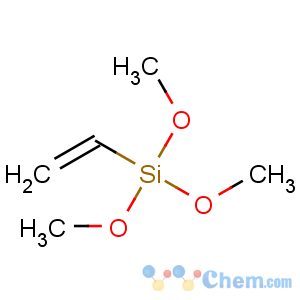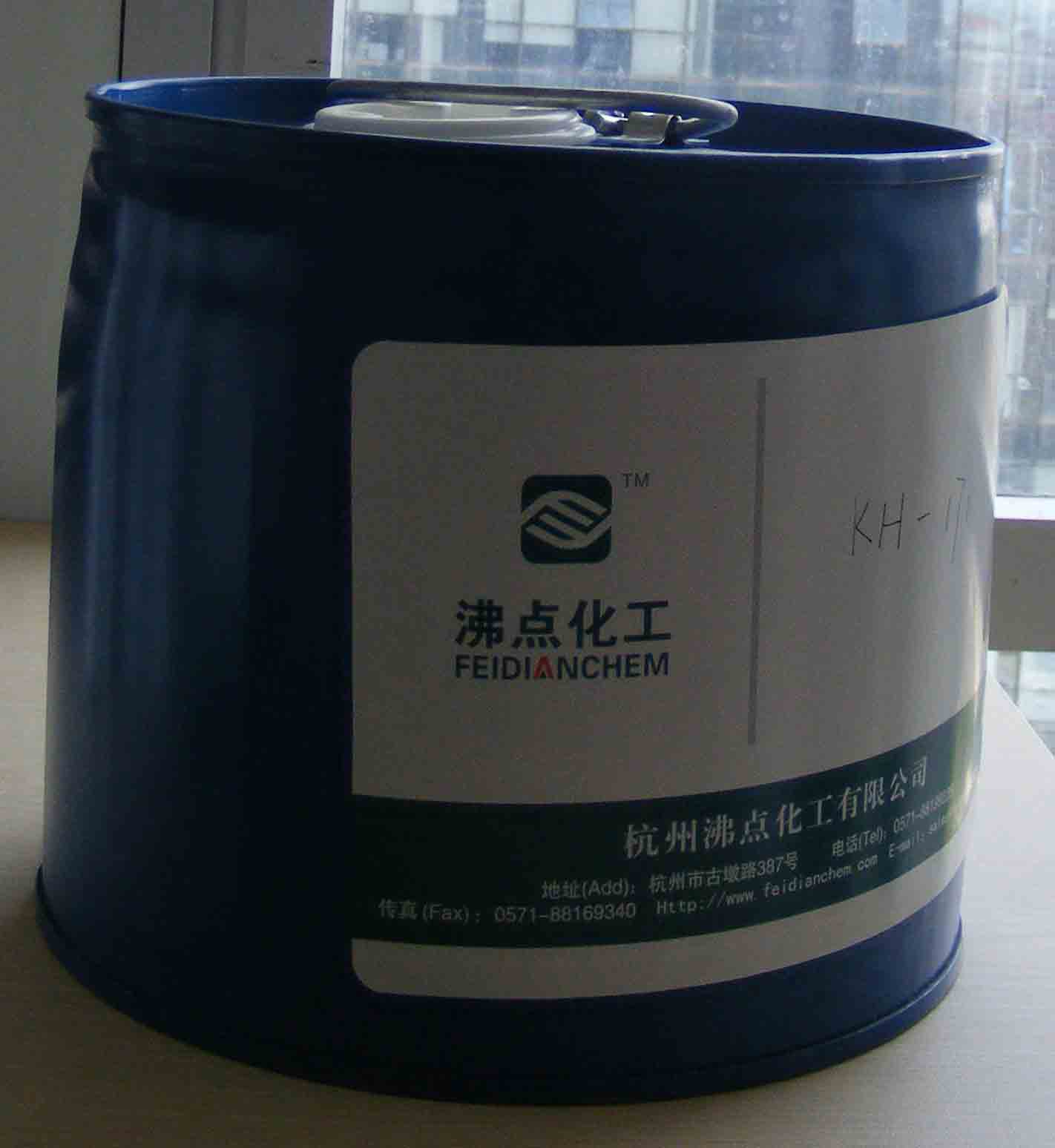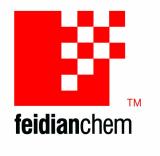KH-171 Vinyltrimethoxysiane
-

Molecular Structure
Detailed Description
KH-171 silane, vinyltrimethoxysiane, is used as a polymer modifier via grafting reactions. The resulting pendant trimethoxysilyl groups can function as moisture-activated crosslinking sites. The silane grafted polymer is processed as a thermoplastic and crosslinking occurs after fabrication of the finished article upon exposure to moisture.
Typical Physical Properties:
CAS No.: 2768-02-7
Molecular Weight: 148.2
Boiling Point<760mmHg>: 122
Flash Point: 28
Color and Appearance: Colorless transparent liquid Density<25/25>: 0.960-0.970
Refractive Index<25>: 1.3905+0.0005
Min. Purity: 98.0%
Applications:
1- Polymer Modification: KH-171 is used to modify polyethylene and other polymers by grafting its vinyl group to the polymer backbone using a radical initiator,such as peroxide. This provides a polymer with pendant trimethoxysilyl groups that may be used as moisture-activated crosslinking sites via hydrolysis of the alkoxy groups followed by condensation of the resulting silanols.
2- Crosslinking of Silane-Grafted Polymers: The reaction of Silane-grafted polyethylene to form a crosslinked or vulcanized polyethylene uses water to form the crosslinks. This technology is widely used around the world for commercial applications in wire and cable insulation, tubing, and other similar uses. The basic reaction sequence is as follows: polyethylene is reacted(grafted) with vinyltimethoxysilane, using a peroxide initiator, in an extruder. The grafted polyethylene is then formed into a finished product, such as cable jacketing, wire insulation, or pipe. The forming step is usually done by a second extrusion, during which a catalyst for the moisture-cure step is added. Finally, the formed article is exposed to moisture or hot water to cause hydrolysis of the Silane and condensation to form crosslinks via Si-O-Si bond formation.

- KH-171 Vinyltrimethoxysiane


 steel_wong@hotmail.com
steel_wong@hotmail.com



